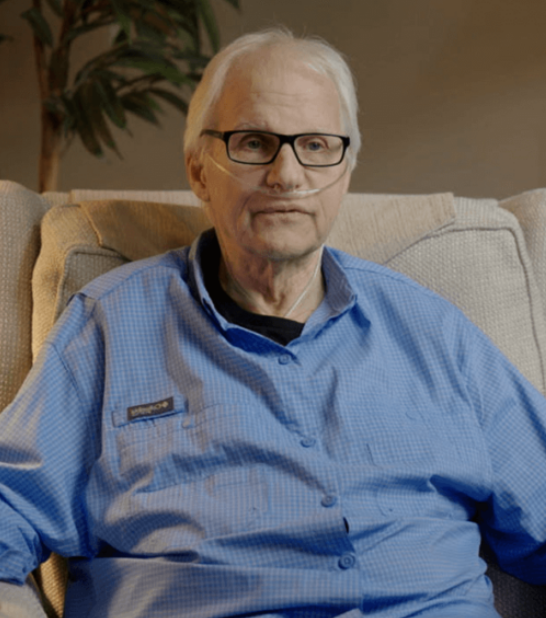Mesothelioma Law Firm
As one of the nation’s top mesothelioma law firms, Simmons Hanly Conroy has a proven track record, securing over $10.4 billion from asbestos cases nationwide.
The lawyers, registered nurses, and staff at our asbestos law firm are committed to helping families affected by mesothelioma.
Call (800) 326-8900 now to find out how we can help your family. Speaking with us is free.




Our Top Mesothelioma Law Firm
Founded in 1999, Simmons Hanly Conroy is a leading national asbestos law firm founded to help people affected by mesothelioma, an aggressive cancer caused by asbestos exposure.
Our high-end mesothelioma law firm has:
- Successfully helped over 7,750 families, including more than 3,600 veterans
- More than 100 attorneys who can travel to meet clients in all 50 states
- The resources needed to determine how you were exposed to asbestos
- Given more than $21 million to mesothelioma and cancer research
- Recovered more than $9.9 billion in mesothelioma compensation
When you choose our firm to represent your family, our team will use our knowledge and resources to get you the most compensation as quickly as possible.
We’ll handle every step of the legal process for your case, from finding the evidence to filing your claim — at no out-of-pocket cost to you.
Get a free consultation now to see if our mesothelioma firm can help you get the compensation you deserve.
What Top Asbestos Law Firms Do for You
As an experienced mesothelioma law firm, Simmons Hanly Conroy is extremely knowledgeable about mesothelioma and the asbestos companies responsible for exposing thousands to this deadly substance.
Our firm has an entire warehouse of evidence about the asbestos industry, including documents that show companies knew about the risks of asbestos but chose to use it in their products anyway.
With our resources, our mesothelioma firm can:
- See when, where, and how you were exposed to asbestos
- Identify who made the asbestos products you were exposed to
- Build a strong legal case on your behalf
- File your mesothelioma lawsuit within set deadlines
- Negotiate strong legal settlements or go to trial if needed
We’ve successfully helped thousands of mesothelioma patients and their families secure compensation from the companies responsible for their illness.
A member of our team is available to answer any questions you may have about the legal process. Contact us now to get started.

“I think one of the best things that happened for my father was having the support and legal backing of a firm with a great reach, a huge amount of understanding, and the power to get things done.”
– Courtney, Daughter of Larry
10 Reasons to Choose Our Mesothelioma Law Firm
At Simmons Hanly Conroy, our mesothelioma law firm is committed to holding asbestos companies accountable for their negligence and securing the most compensation possible for our clients.
We pride ourselves on being one of the fastest asbestos law firms in the country to secure results for those we serve.
Find out how our mesothelioma firm’s compassion, experience, and resources help us get the best results possible for our clients.
1. Our Long History of Notable Mesothelioma Results
As of July 2025, our asbestos law firm has recovered more than $9.9 billion for thousands of clients impacted by mesothelioma.
In one case, we secured $250 Million for a former U.S. Steel employee — the largest mesothelioma verdict against a single defendant in the history of asbestos litigation.
Mesothelioma settlements and verdicts recovered by our asbestos law firm include:
- $60 million for a laborer in New York, the largest single plaintiff verdict in NYCAL history
- $34 million to a California mechanic, which was a Top 100 Verdict that year
- $7 million to a Pennsylvania welder — the first time in NYCAL history that a jury’s award was judicially increased
- $20 million for a mechanic, which was the largest compensatory asbestos verdict in Missouri
- $40.1 million to a U.S. Navy veteran from Washington, the largest compensatory verdict in NYCAL history
- $4.7 million for a laborer in New York who was exposed to asbestos at work
- $30 million to a California construction supervisor, a National Law Journal’s Top 100 Verdict
- $3.9 million for a U.S. Army veteran and painter from Maryland
- $10 million to a longshoreman from Louisiana, a National Law Journal’s Top 100 Verdict
While results will vary based on the specific details of each case, our firm will fight for the most money possible in your case.
2. Decades of Asbestos Litigation Experience & Resources
For over 25 years, our mesothelioma law firm has successfully helped thousands of families with their legal claims. Our extensive experience with asbestos litigation is invaluable in creating effective, personalized strategies for our clients.
During this time, we’ve assembled unrivaled resources for mesothelioma litigation:
- 16 full-time case investigators, including former police officers
- In-house medical department led by registered nurses
- Professional technical support for document management and trial preparation
- Research and Discovery Department comprised of veteran attorneys and Ph.D. researchers
- Robust national network of medical and safety experts
- Warehouse of evidence on asbestos companies, job sites, and products
Because we’ve handled so many cases in the past, it’s possible our mesothelioma law firm has already represented someone who was harmed by the same asbestos product or company as you.
3. An Entire Team Devoted to Your Case
Our mesothelioma law firm focuses on providing clients like you with the personal attention they deserve. We are well-equipped to help patients, family members, and loved ones affected by mesothelioma take legal action and find peace of mind.
For each case, our mesothelioma attorneys work within a small group called a trial team. This way, you’ll work with the same small group of people on your case.
Every trial team is led by a senior partner at the firm and includes:
- Experienced attorneys
- Investigators
- Medical experts
- Paralegals
- Registered nurses
Each trial team handles only a few cases at a time, so our asbestos attorneys have the time to truly get to know you and ensure your case gets the attention it deserves.
Our experienced mesothelioma lawyers know that while every client is unique, they all have one thing in common: Each is a person whose life was destroyed by the negligence of asbestos companies.
We’re committed to providing families with the attention and respect they deserve.
At Simmons Hanly Conroy, we've helped thousands of families seek justice. See what our mesothelioma clients have to say about their experience.

“Simmons Hanly Conroy helped us when nobody else would. They care about you, they really do.”
– Mike, Mesothelioma Warrior

“It’s been an amazing journey with Simmons Hanly Conroy, handling this for us and teaching us everything about filing a lawsuit.”
– Jimmy, Mesothelioma Survivor

“Hiring Simmons Hanly Conroy was the smartest decision Norris and I ever made together. They’re in it for all the right reasons.”
– Lori, Wife of Norris

“I think the Simmons people are absolutely top shelf. I didn’t have to do anything except make a phone call.”
– Howard, Husband of Linda
4. A Personal Connection to Mesothelioma Cases
Each Simmons Hanly Conroy employee is passionate about helping victims and families affected by this deadly cancer because we have seen firsthand the pain a mesothelioma diagnosis can cause.
After losing both sets of his grandparents at a young age, Firm Founder John Simmons formed a close bond with his wife’s grandmother Ivy. In fact, the first thing Ivy said to him when they met was that he could call her grandma.
When she passed away due to mesothelioma decades later, John felt the shock and devastation so many of our clients also know firsthand.
Sadly, he’s not the only member of our team to have lost close friends or loved ones to asbestos-related diseases. It’s part of what emboldens us to fight on behalf of families like yours.

“That constant caring about the clients and what they’re going through has essentially been absorbed by all of the other lawyers and staff, and that really is a credit to founder John Simmons and the leadership that he showed from the beginning.”
– Michael Angelides, Firm Partner
5. On-Staff Nurses & Medical Support
We know how overwhelming it can be to navigate both the legal and medical aspects of mesothelioma. That’s why our firm has on-staff nurses who can provide medical support to our clients for every stage of their diagnosis.
Our medical team can help you:
- Get answers to questions about your illness and treatment plans
- Research mesothelioma specialists
- Manage nutrition and side effects from chemotherapy
- Secure lodging and travel arrangements when seeing specialists
- Find non-skilled medical care, like sitting services or support groups nearby
- Prepare all asbestos-related medical documents to help strengthen your case
- Communicate medical updates and developments to your attorneys
When you work with our compassionate nurses, you’ll gain access to a group of dedicated health care professionals who can help you get the support you need.
Meso is like no other. It's overwhelming. It's confusing. It makes someone angry, and the whys and the hows are overwhelming. My name is Amy Fair. I'm a registered nurse and Director of Medical Relations here at Simmons Hanly Conroy.
To help clients navigate through the mesothelioma journey, I help them with their medical questions. That involves treatment, that involves maybe questions about nutrition and general questions that they should be asking their oncologist and their surgeon.
The best advice I would give someone diagnosed with mesothelioma is to educate yourself. It's important to ask your doctor how many patients have they treated. We have developed relationships with top specialists. So it's something that we can help navigate through that world of finding the best doctor to treat their disease.
The other bit of advice I would give them is to understand that it is a holistic disease. So decisions need to be made not only by yourself, but with your family.
The standard treatment options for mesothelioma are radiation, chemotherapy, surgery, and sometimes a combination of those treatments. The health professionals that should be on your team for diagnosis, it normally does start with your primary medical doctor. That goes into a pulmonologist or a gastroenterologist, depending on what type of mesothelioma you have, and to a surgeon, and then lead into an oncology or radiology component. And also, it's very important that you have a nutritionist on this team.
After your surgeon looks at your complete health history, looks at your pathology, and looks at your CT or PET scan, they'll be able to tell you if you are a surgical candidate.
The goal of chemotherapy is to keep the cancer cells from replicating. But with that toxin, you're also damaging good cells. It's important that the oncologist is giving you good recommendation on what type of chemotherapy your body can take and the types of surveillance that's going to go along with your chemotherapy.
I give them a general questions list of things that you should be asking your oncologist, things you should be asking your surgeon. It's natural to have a lot of questions about your treatment modality that you choose. So it's important that you get your list of questions, which is something I tell folks a lot. Get a piece of paper, get a pencil, keep it on your nightstand, even if it's in the middle of the night, if you've got a question, write it down.
Every person in this firm from the mailroom to the receptionist, to the attorneys, to the paralegals, to our media folks, everybody here is invested in this disease. They're invested in helping these folks navigate through this and people ask me why I've been here 20 years. That's my answer. Because I don't want to be anywhere else, because I want to be around people that care. And I want to be around people who treat people like patients and not clients, and who want to make a difference — and I feel like I am.
6. Over $21 Million Given to Cancer Research
At Simmons Hanly Conroy, we passionately stand up for our clients in the courtroom and in our local communities.
To date, we’ve given over $21 million to a variety of different cancer research and mesothelioma support organizations, including:
- $10.2 million to fund a new cancer institute at Southern Illinois University (SIU)
- $8 million to mesothelioma research institutions like the Columbia University Medical Center, Penn Medicine’s Mesothelioma and Pleural Program, and The University of Chicago Medicine Comprehensive Cancer Center
- $3 million to the Asbestos Disease Awareness Organization (ADAO) and the Mesothelioma Applied Research Foundation
We’re here to support mesothelioma patients and their loved ones through every step of this journey. Contact us now to see how we may be able to help you.

“Simmons Hanly Conroy is the largest, they’re the best, but also, they invest their money in research and trying to fight that disease.”
– Sheryl, Daughter of Burlene
7. No Hourly Fees or Out-of-Pocket Costs
You won’t have to pay anything upfront or out of pocket to file a mesothelioma claim with Simmons Hanly Conroy since we work on a contingency basis.
Our asbestos law firm only gets paid if we secure compensation for you. This means there’s no financial risk to taking legal action.
8. We Can Travel to All 50 States
The asbestos lawyers at our mesothelioma firm regularly work with families across the United States and have successfully secured results in all 50 states.
If you or a loved one has mesothelioma, our attorneys will travel to you at no cost — no matter your location. We can also set up virtual meetings if preferred.
Select your state to find out how our firm has helped families in your area.

“Every family gets the personal attention of working with a small, local law firm, but also the extra benefit of the muscle and resources of a large national law firm, which is critical in cases where you’re taking on major corporations.”
– Myles Epperson, Firm Partner
9. Maximizing Payouts with Asbestos Trusts
In addition to filing a mesothelioma legal claim, you may be able to get compensation from one or more asbestos trust funds — without having to set foot in court.
An estimated $30 billion is currently available in asbestos trust funds today. Our attorneys can help you pursue compensation from these funds.
These trusts were established by companies that filed for bankruptcy to avoid asbestos litigation. Bankrupt companies can no longer be sued — so the courts forced them to set aside money in trusts to pay those harmed by their products.
Accessing trust fund compensation does not affect your other legal options. Our team can help you secure compensation from all of the options available to you, maximizing your potential results.
10. Founded by a U.S. Military Veteran
Over 30% of mesothelioma diagnoses involve U.S. military veterans. Our asbestos law firm is uniquely positioned to help these brave men and women get the justice they deserve.
Before attending law school, Firm Founder John Simmons served as a combat engineer in the U.S. Army, instilling in him a profound understanding of the sacrifices made by our military personnel and the unique challenges they face.

“Our law firm has represented over 3,600 veterans, and we’ve employed staff who have served across all of the U.S. Armed Forces.”
– John Simmons, Chairman & U.S. Army Veteran
John is just one of the many caring and award-winning asbestos attorneys at our mesothelioma firm. Find out more about our dedicated team below.
Our mesothelioma lawyers have centuries of combined experience with asbestos litigation. Meet a few of our many award-winning attorneys.
Who Can Top Asbestos Law Firms Help?
If you or someone you love has been diagnosed with mesothelioma, an asbestos law firm may be able to file legal claims on your behalf and fight for the most compensation possible.
Our asbestos law firm can help:
- Patients diagnosed with mesothelioma
- The immediate family members of a patient
- An estate representative of someone who passed away from mesothelioma
Even if your loved one has already passed away, you may still be able to file a wrongful death lawsuit and pursue justice on their behalf.
Call (800) 326-8900 now to find out if our asbestos law firm can help your family. There are no costs to speak with us.
Occupations at Risk of Asbestos Exposure
Millions of employees were unknowingly put at risk of asbestos exposure by working with or near the dangerous mineral on the job.
Occupations at risk of asbestos exposure include:
- Bricklayers
- Carpenters
- Coal miners
- Construction workers
- Electricians
- Firefighters
- Insulators
- Laborers
- Machinists
- Mechanics
- Military service members, particularly U.S. Navy veterans
- Pipefitters
- Plumbers
- Railroad workers
- Shipbuilders and ship scrappers
- Steel workers
- Tile setters
Anyone who lived with these workers may have also been at risk of exposure, as asbestos fibers can be carried home on clothing or equipment. This is known as secondhand asbestos exposure.
Why a Mesothelioma Law Firm Can Fight for You
For decades, many companies made, used, or sold products that contained asbestos. When these products break down over time, fibers can be released into the air and inhaled, which may cause the cancer mesothelioma to develop 20 to 50 years later.
Mesothelioma law firms work to hold asbestos companies accountable because many:
- Knew the risks linked to their products
- Failed to warn employees or consumers about these dangers
- Put their profits over the health and well-being of countless Americans
At Simmons Hanly Conroy, our mesothelioma law firm has the experience and resources necessary to stand up to these powerful corporations and secure the justice you deserve.
Get a free case review now to see if our firm can fight for you and hold the companies responsible for your illness accountable.

“My lawyer said, ‘Dr. Snyder, you do realize that the companies who made the products you worked with as a 16-year-old knew asbestos caused mesothelioma?’ I didn’t realize that. I was essentially exposed with their knowledge.”
– Bonnie, Mesothelioma Survivor
Why Choose Simmons Hanly Conroy as Your Mesothelioma Firm?
As a leading national mesothelioma law firm, Simmons Hanly Conroy offers our clients a wide range of benefits and a proven track record with asbestos exposure cases.
If you need an asbestos law firm that will understand your case and can help you get the mesothelioma compensation you deserve, turn to our experienced team.
Why Simmons Hanly Conroy?
- 25+ Years of Experience
- $10.4 Billion in Total Asbestos Results
- 7,750+ Families Helped
- 100+ Attorneys in Offices Nationwide
- Over $21 Million Donated to Cancer Research
With our decades of legal experience and vast resources, we are well prepared to help families across the country. Our mesothelioma law firm has secured some of the highest amounts of compensation in the history of asbestos litigation.
Every client also receives personalized attention from our legal teams and has access to our on-staff nurses throughout the process — and after.
Contact our mesothelioma law firm now to see if we can help with your case for free.
Fill out the form below and we'll reach out to you.
Secure Submission
Top Mesothelioma Law Firm FAQs
What is a high-end mesothelioma law firm?
A high-end mesothelioma law firm has attorneys on staff who are dedicated solely to helping asbestos exposure victims and their families secure compensation from the companies responsible for their illness.
Top mesothelioma law firms will work to:
- Identify all of the asbestos products you were exposed to
- Determine which companies made or sold these products
- File legal claims on your behalf
- Negotiate mesothelioma settlements or pursue a verdict in court
Call (800) 326-8900 now to see if our mesothelioma law firm can fight for your family.
What are qualities of the best law firm for mesothelioma?
The best law firms for mesothelioma have:
- Decades of experience handling asbestos litigation
- Billions of dollars in past results
- A nationwide presence, allowing them to help families across the country
- On-staff nurses to provide clients with medical support
- Free legal consultations and no upfront or hourly fees
At Simmons Hanly Conroy, our award-winning mesothelioma law firm has all of these qualities and more.
Contact us now to find out how our asbestos firm can support your family.
How do I find the best mesothelioma law firm near me?
The best mesothelioma law firm for your case may not be one that’s located nearby. Local firms aren’t always able to match the resources of a national firm that can come to you, providing a personal experience wherever you may be in the U.S.
As a national asbestos law firm, we can help families in all 50 states take legal action. Our attorneys can meet you at a time and location of your choosing — at no cost to you.
Whether you choose an in-person meeting or virtual consultation, our dedicated team is here to support your family every step of the way.
Can a family member hire an asbestos law firm?
Yes. A family member may be able to hire an asbestos law firm if their loved one was diagnosed with mesothelioma or passed away from this cancer.
By working with an asbestos firm, you can get help pursuing justice for your loved one. See if you may be eligible now.
Do I need a mesothelioma law firm to take legal action?
To file a mesothelioma lawsuit, yes. Without an experienced asbestos firm on your side, taking on these large corporations can be very challenging, especially if you’re also dealing with complications from mesothelioma.
We’ll handle every step of the legal process for you, so you can focus on your health and your loved ones.
How much does it cost to work with your mesothelioma firm?
You won’t have to pay any money upfront or out of pocket when working with Simmons Hanly Conroy since we work on a contingency basis.
We only get paid if we successfully secure financial compensation for you and your family.
What are common results for your asbestos law firm?
While every case is different, some of our clients with mesothelioma have received millions of dollars in compensation. The amount you may receive depends on the facts of your unique situation.
Some of the results we’ve secured nationwide include:
- $20 million for a mechanic in Missouri
- $5.1 million to an HVAC worker in California
- $4.6 million for a former welder in New York
- $3.8 million to the family of a laborer in Pennsylvania
- $4 million for an electrician in Illinois
- $15 million to the family of a construction worker in New Jersey
Our asbestos firm will pursue as much compensation as possible in any mesothelioma cancer case. The amount you may receive depends on your age, diagnosis, and several other factors.
Call (800) 326-8900 now to find out if we may be able to pursue compensation on your behalf.
Are there deadlines to working with mesothelioma law firms?
Yes. Laws known as statutes of limitations prevent you from filing a mesothelioma lawsuit after a certain period of time. These laws vary in each state.
If this deadline passes in your case, no mesothelioma law firm will be able to help you.
Don’t miss your chance for justice. Contact our team now for a free consultation to see if we can fight for your family.






